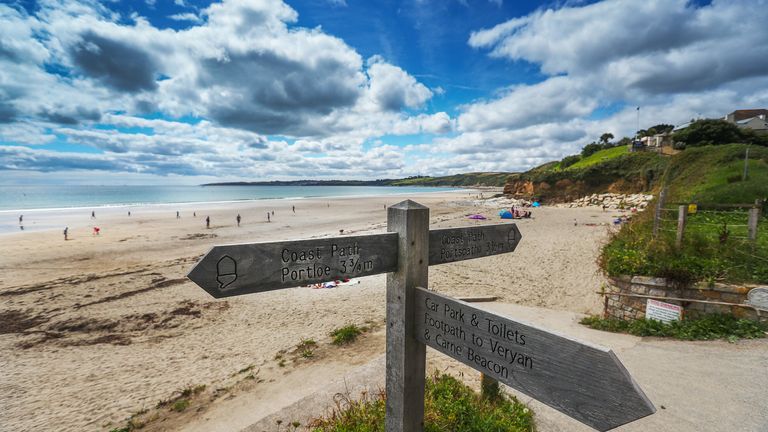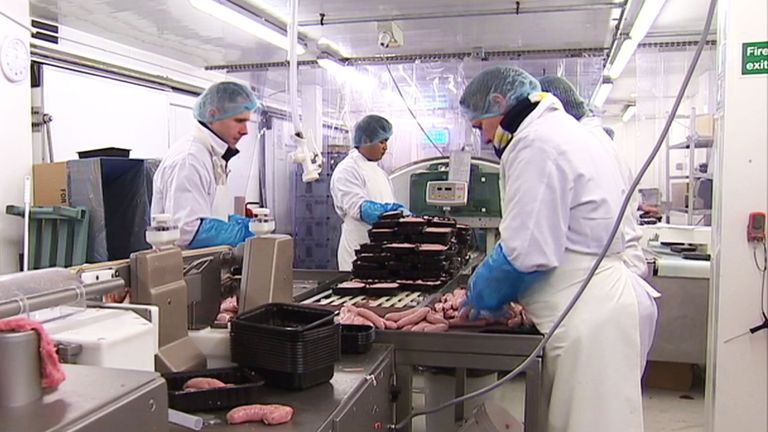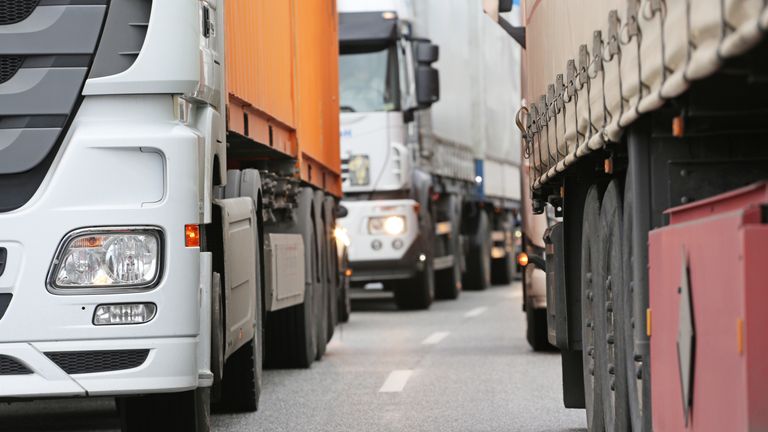‘Summer of closures’ for hotels and restaurants left off ‘pingdemic’ exemption list
Hotels and restaurants face a summer of closures after their workers were not included in quarantine exemptions, the government has been told.
Industry body UK Hospitality said the sector would have to work with one hand tied behind its back, while the Federation of Small Businesses (FSB) said the impact on the sector might threaten domestic holidays in the UK this year.
Supermarket shop staff were also left out – prompting one retail boss to say there was no point in exemptions that have been granted further up the food supply chain if there was no one to put that food on shelves.
A government list of 16 industries will excuse “critical” staff from having to self-isolate if “pinged” by the NHS COVID app – but several sectors have been left out and others that are included say they need to know more details – and quickly.
The CBI said the list would need to be expanded within days.
The Road Haulage Association – representing an industry already struggling with a shortfall of drivers even before the so-called “pingdemic” – said the guidance from Whitehall was “confusing and tangled in red tape”.
Kate Nicholls, chief executive of UK Hospitality, said: “It is disappointing that the government has drawn the list of roles so tightly and left hospitality and the rest of the economy to face the consequences.
“We now face a summer of venue closures and reduced service, when we should be at a seasonal peak. The sector will do all it can to provide great service, but it will be with one hand tied behind our back.”
Craig Beaumont, director of external affairs at the Federation of Small Businesses, told Sky News it could affect people taking staycations this summer if hotels and restaurants at UK destinations are closed.
Iceland’s managing director Richard Walker said the decision to leave supermarket staff off the list left him “deeply disappointed”.
Mr Walker said: “The food supply chain only works if teams are in place to support at each stage – there’s no point in fixing the manufacturing and logistics issues if there is no one to put products on the shelves, serve customers at the till and deliver to their homes.”
The decision on Thursday night on which sectors could allow workers in to keep the economy moving came after a growing number of major businesses reported disruption to grocery and fuel supplies due to staff shortages.
It was stressed that individual firms would have to get the green light from the government via letter in order to grant essential, named, COVID-free staff in for work purposes if they were supposed to be in precautionary quarantine.
Sectors on the list included energy, food production and supply and “essential” transport.
John Foster, CBI director of policy, said: “This exemption list will help some of our critical sectors to keep moving but it will rapidly become significantly challenged.
“First, the idea of potentially thousands of businesses emailing Whitehall officials to request approval for individuals to go to work is undeliverable let alone undesirable.
“Second, the list is slim, missing out many businesses in the supply chains that will be crucial to the running of these key industries so will need to be significantly expanded within days.”
Nick Allen, chief executive of the British Meat Processors’ Association, told Sky News that firms “desperately need” detail in order to implement the government’s guidance and said this was apparently not going to come until Monday.
He said the trade should be doing well during the current spell of barbecue weather but instead faced a “nightmare”.
Separately, it was hoped that a daily contact testing scheme would free up 10,000 food supply workers currently isolating to ensure the nation’s supermarkets remained stocked.
Publication of the list and testing regime followed a desperate plea from business leaders for the government to bring forward the easing of rules for the fully vaccinated from next month, arguing they were closing the economy down.
Just hours earlier, it emerged that over the past week more than 600,000 people in England alone had joined the ranks forced out of workplaces and back home for 10 days.
Supermarkets, meat producers and other factories, pub chains and even car plants were among those to report supply problems – with the boss of Iceland even urging shoppers not to stockpile as a small number of shelves and freezers ran short on some stocks.
Ian Wright, chief executive of the Food and Drink Federation, said: “The last few days of uncertainty have been a period of great disruption for the food and drink supply chain.
“It is clear that the government has listened to industry’s concerns and the recent announcement of exemptions from isolation, which includes food and drink manufacturers, is welcome.
“The devil is in the detail so we will continue to look into the guidance and further understand how the scheme will work.”
The British Retail Consortium insisted disruption was “limited” currently and it was working with the government to identify hundreds of key distribution sites for the contact testing scheme.
But chief executive Helen Dickinson added: “Government will need to continue to listen to the concerns of the retail industry in the coming days and must be prepared to take further action if necessary.”
Retailers including the Co-op and Iceland are planning to take on thousands of extra workers to offset the crisis.
Yet that comes at a time when demand for labour is high following the reopening of the economy.
In a new report the Recruitment and Employment Confederation said that “many businesses are really struggling to find the staff to fill vacancies”.



